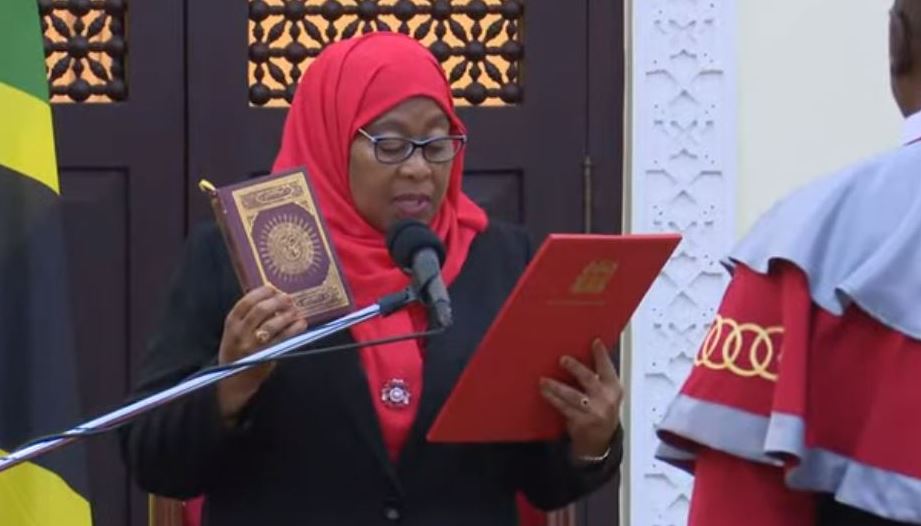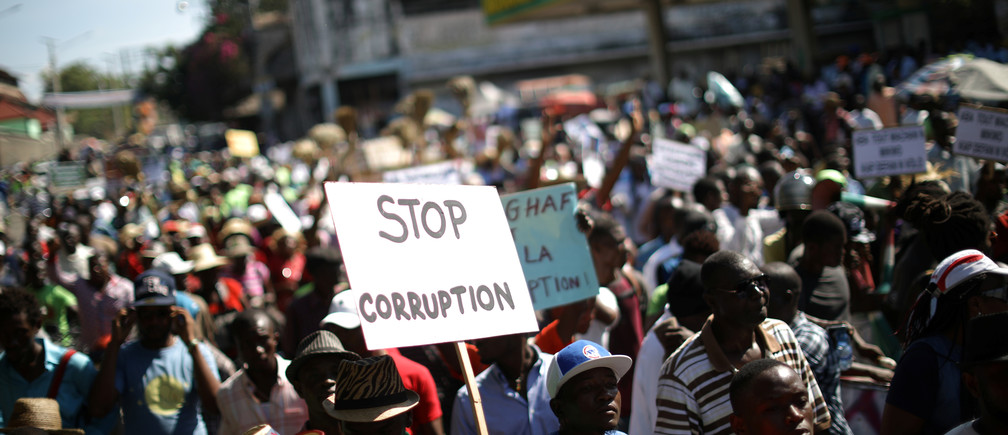Tackling tax dodging and illicit capital flight in the extractive sector can be a challenge for tax officials and policymakers in new extractive resource-rich Countries such as Tanzania, Uganda and Kenya, whose tax and extractive governance regime is just in its formative stages and local expertise in its pupilage stage
Tax and development: How to curb transfer pricing and illicit financial flows in the extractive sector
By Moses Kulaba, Governance and economic analysis centre, Dar es Salaam-Tanzania
This brief highlights some of the basic strategies that can be used by tax authorities and governments to tackle aggressive tax planning and dodging in the extractive sector. It touches on basics such as understanding corporate and financing structures synonymous with extractive MNE’s and how these are used as conduits for base erosion, tax-avoiding and illicit financial outflow. We conclude with a case scenario to facilitate discussion. The brief is in response to feedback from our readers reacting to our previous posted online article and in which we touched on the basics of understanding illicit capital flight in the extractive sector. After highlighting the problem, our readers have challenged us to also share some solutions. The brief targets sector practitioners, policymakers and leaders, professionals, students and other stakeholders.
In recent years there have been legislative and policy reforms in Countries to ensure that governments have a firm grip and maximize their take from their extractive wealth. However, as governments celebrate these attempts, experience and practice suggest lacunas still exits and the current reforms maybe not enough in curbing the tax avoidance and illicit capital flight menace.
According to Global Financial Integrity (GFI) and the Mbeki High-Level Panel Report on IFFs latest reports, shows that IFF’s from the African continent have been increasing with losses estimated between USD50 Million and USD 80 Million over the past years. Corruption and the extractive sector has constantly provided a major conduit for tax avoidance and illicit resource outflow from Africa. Alarming evidence from leaked documents such as the Panama papers now shows, Multinational companies, have taken advantage of their titular counterparts in government to structure complex aggressive tax planning arrangements used to evade, avoid and ship out potentially taxable income, denying government and local billions of dollars in revenue and development. The arrangements can be so complex and entwined, making it a nightmare for tax authorities and governments to crack.
Even with the new negotiations and deals signed between governments and extractive MNEs, governments have to constantly up their game and mantra to ensure that the old normal does not evolve into just the new normal as the old saying goes “monkeys do not change. They only change their forests’.
So what are some of the basic measures which can be taken
The debunking of Corporate Structures
Governments can tackle tax dodging and illicit flight by debunking and constantly monitoring the corporate structure of the extractive MNE’s. The corporate structure can determine whether an entity is a resident or non-resident entity for tax purposes. The rules applied for taxing resident and non-resident entities are different and the status of the MNE may be favourable depending on its resident status and the corporate vehicle and form that it chooses to take.
Extractive MNEs have corporate structures with their parent companies located in one Country as Headquarters and subsidiaries located in more than one country or tax jurisdictions, depending on the interests of the company and its shareholders.
The MNE’s headquarters or major subsidiary may be located in low or non-tax jurisdictions, such as Jersey, Guernsey, Isle of Man, Mauritius and in recent years Middle East Countries and Cities such as Bahrain, Dubai have been added on the infamous list of tax havens. As these Middle East countries compete to economically diverse from Oil and develop themselves as a global investment and financial centres, they have created low or non-tax regimes as incentives for attracting foreign investment.
MNE’s whose corporate structures have footprints in these Countries need to be subjected to extra scrutiny and background checks to determine whether they are not used for aggressive tax planning measures.
Corporate restructuring, takeovers through mergers or acquisitions or buying shares or stakes in other companies (also known in the petroleum industry as farming in or farming out). Quite often this may be used to ensure that the company diversifies its investment portfolio and minimizes its risks by spreads its operations and ownership in other profit-making business. However, this presence in multiple companies creates a spaghetti of ownership structures which may be difficult for the tax authorities to trace and effectively control for tax purposes. Imagine, a nonresident entity operating in your country but with stakes in more than 20 companies and over 300 projects.
Debunking Management structures
Extractive MNE’s also structure the management in a manner which can likely reduce their tax and labour related obligations.
Governments, therefore, need to examine and understand, where the extractive MNE’s key decision is taken and how staff are recruited. An extractive MNE with operations in Tanzania but whose majority board members are nonresident and board meetings take place outside Tanzania, would easily pass for a non-resident entity. The income tax rules treatment and obligations for such a company would obviously be different from a fully registered resident entity.
As a channel for reducing employment tax and labour law obligations, extractive MNEs can outsource Human Resource and Employment related services to management companies. The outsourced Management companies handled staff contracts on behalf of the extractive company in return for a management fee.
Here two things can happen.
The Management Services can be handled by the company’s subsidiary located outside the Country, either at the Company’s headquarters located in low or non-tax jurisdiction or another subsidiary, whose majority shareholders could be domiciled in a low or non-tax jurisdiction. The fees charged by the subsidiary or parent company can be overinflated to reduce the profit and tax burden in the country of operation and channelled out of the country to low tax jurisdiction.
Secondly, the Management Company can be a local entity paid to handle all Management and Human Resource services on behalf of the MNE.
The Management Company reduces the MNE’s employment tax obligations by directly recruiting and providing short term contracts or jobs to staff which are paid below the labour market in the extractive sector. The MNE pays the Management Company a fee for this service and has no overall tax obligations thereafter on the staff it receives supplied by the Management Company. The staff are literary employees of the management company and not the extractive MNE. Therefore, any tax obligations such as employment taxes or income taxes on services including labour rights issues such as negotiations, compensations for damage or loss are handled by the Management company. The MNE, therefore, reduces its employment tax obligation by minimizing the amount it pays to the staff through the management company.
A debunking of Financing Arrangements
Multinational Extractive Companies finance their operations through arrangements structured across multiple financial institutions. These financing arrangements can be structured in a manner which ensures that payment of interests on the loan is too high and leaves the company with a very little taxable income. In most countries, interest payments on loans are nontaxable. Although governments have been tightening their tax laws on thin capitalization rules by ensuring that the debt to equity ratios are within the limits, companies may also restructure the financing through a complex web of financing institutions that make ultimate taxable income in the extractive resource-rich countries is left low. Debts may be sold and restructured to take longer than earlier conceived and therefore prolong the period for the company starting to pay taxes.
Remedy for adjusted tax assessments
An adjusted assessment basically refers to a notice to reduce or increase the amount of tax imposed on an entity by the tax body. The government has the power to conduct an adjusted assessment based on new or additional information which may come in the public knowledge or purview of the tax authority, even after the Company’s accounts have been implemented. The adjustments, however, need to be fair, transparent and based on solid evidence of aggressive tax planning and evasion.
Use advance tax rulings
The tax authority can issue advance tax ruling specifying how specific extractive transactions will be treated for tax purposes. Current income tax statutes and practice notes provide for this. However, the existing rulings have been too general and subject to abuse. These ruling should clear and time-bound, to ensure that the extractive MNE does not abuse them. The government also needs to increase surveillance during this period to ensure that the MNE is not using this period to circumvent the law by either over importation or exportation, dumping overstocking or mis-invoicing aimed to reduce either current or future tax liabilities or achieving a predetermined tax benefit.
For example, if a Company receives an advance tax ruling on the importation of certain capital goods such as heavy-duty Caterpillar tires or heavy-duty mining machinery, surveillance should be put in place to ensure that the company imports and pays an amount which commensurately matches its required operation.
Implementation of legislative reform to curb potential lacunas
There is a need for an evaluation of the legislative and fiscal reforms so far passed to seal lacunas in the Country’s fiscal and policy regimes governing the extractive sector.
Despite being passed over the years, have remained largely unimplemented. The Resource Governance Index released by the Natural Resources Governance Institute (NRGI) shows that Tanzania lagged behind by 26 points in the implementation of its extractive policies and legislation. Transparency and potentially tax avoidance curbing measures such as Contract disclosure and Beneficial ownership has remained unimplemented. Smooth exchange of information for tax purposes between less developed countries where mining operations take place and the OECD countries where the Companies are headquartered has remained poor and curtailed by ridiculous international law and treaty restrictions.
Tax incentives need to be properly awarded and managed. The government has to ensure that jobs will be created and revenue will be collected from these jobs. Fiscal, legislative and policy reforms have to be predictable and applied in a non-arbitrary way to avoid uncertainty and shocks in the extractive sector. Companies have to know in advance the consequences of flouting the rules and the burden for actions such as tax avoidance, evasion and illicit outflow.
Review of Double Taxation Agreements (DTAs)
Double Tax Agreements are treaties signed between two contracting states ensuring that nationals and residents of the two states are not taxed twice. They are primarily supposed to facilitate the international flow of capital, technology, services by eliminating taxation of income and other taxes through a bilateral arrangement and occasional resolution of income. DTAs prescribe whether the income will have taxed at the source where the income is made or where the taxable entity resides (resident principle) or a combination of both. They also provide for exchange of information for tax purposes
Despite their underlying intentions, DTAs are used as conduits for tax evasion as they facilitate income to flows from less developed countries where MNEs derive it to developed countries where MNEs are resident. Since less developed countries are resource-rich and not capital-rich, essentially, income flows substantively from one directions from developing countries as a source to the developed countries as a residency country.
DTAs allows aggressive tax planning schemes such as ‘treaty shopping’ where a Company registers a subsidiary in a country with a wide treaty network and invests through it to enjoy treaty benefits. Round tripping where investments, capital, income and profits obtained in one Country are re-routed back into the Country through low tax havens as investment from abroad to enjoy tax treaty protection.
A study by the Tanzania Tax Justice Coalition in 2016[1] revealed that the current DTAs are old and contain taxation regimes that surrender Tanzania’s treaty powers in favour of economically developed partners. DTAs have capped withholding tax rates that can be levied on interests, dividends and royalties Although the current DTAs have rated higher than 10% set in Tanzania’s income tax statutes, there are potential risks for tax loss in the future.
Establish transfer pricing methods to be used in determining the arm’s length price of transactions between related extractive MNEs and training tax officials to master them.
Tax avoidance and illicit financial outflows in the extractive sector largely take place through transfer mispricing arrangements. In principle, transfer pricing is not bad in business, however, when it is used as an aggressive tax planning measure by manipulating the transfer price (mis-pricing) to achieve a tax benefit, it becomes problematic.
Transfer pricing is an accounting practice that represents the price that one division in a company charges another division for goods and services provided. Transfer pricing allows for the establishment of prices for the goods and services exchanged between a subsidiary, an affiliate, or commonly controlled companies that are part of the same larger enterprise. Transfer pricing can lead to tax savings for corporations. A transfer price is based on market prices in charging another division, subsidiary, or holding company for services rendered.
However, companies have used inter-company transfer pricing to reduce the tax burden of the parent company. Companies charge a higher price to divisions in high-tax countries (reducing profit) while charging a lower price (increasing profits) for divisions in low-tax countries.
Transfer prices that differ from market value will be advantageous for one entity while lowering the profits of the other entity. Multinational companies can manipulate transfer prices in order to shift profits to low tax regions.
To remedy this, regulations enforce an arm’s length transaction rule that requires pricing to be based on similar transactions done between unrelated parties. Several methods can be used by MNEs and tax authorities to determine the accurate arm’s length pricing for transactions between related MNEs. The OECD has outlined five major methods which can be used these include; The Comparable uncontrolled price method (CUP), the resale price method, the Cost plus method, Transactional net margin method (TNMM) and the transactional profit split method. According to the OECD, the option that an organization chooses to use depends on the particular situation. It should take into account the amount of relevant comparable data that is available, the level of comparability of the uncontrolled and controlled transactions in question, and whether a method is appropriate for the nature of a particular transaction (determined through a functional analysis). We will discuss this subject in detail in another tax and development bulletin which will be released soon.
In recent years there have been legislative and policy reforms in Countries to ensure that governments have a firm grip and maximize their take from their extractive wealth. However, as governments celebrate these attempts, experience and practice suggest lacunas still exits and the current reforms maybe not enough in curbing the tax avoidance and illicit capital flight menace.
According to Global Financial Integrity (GFI) and the Mbeki High-Level Panel Report on IFFs latest reports, shows that IFF’s from the African continent have been increasing with losses estimated between USD50 Million and USD 80 Million over the past years. Corruption and the extractive sector has constantly provided a major conduit for tax avoidance and illicit resource outflow from Africa.
Even with the new negotiations and deals signed between governments and extractive MNEs, governments have to constantly up their game and mantra to ensure that the old normal does not evolve into just the new normal as the old saying goes “monkeys do not change. They only change their forests’.
We conclude with a fictitious case scenario which can be read for further discussion and reflection on the subject.
Extractive Company Corporate Structure and Tax Case Scenario
| Indemen Resources Plc is a large mining company with interests in Mining and Petroleum. The Company was registered with its Headquarters in Jugoland but has subsidiaries in Temboland, Caconia, Alsania and Mende Islands. One of these, Mende Islands is renowned for its secret laws to protect the identity of investors, it provides a litany of investment facilitation incentives, including o% tax on corporate income. In Mende Islands, an investor does not have to be physically present to establish a company.
In 2017, Indemen Resources acquired Mining Interests in Temboland where it started operations. It established Shamudulio Energy Plc as a subsidiary in this country to take care of the Mining and Oil & Gas fields which been operational for the past 5 years. The Company’s subsidiary, Matecash Intl located in Mende Islands manages its accounts, banking and legal affairs on behalf of the other subsidiaries.
Most of its operations have declared losses for the past ten years. However, the books of accounts of its subsidiary, Matecash in Mende Islands have continuously improved with large volumes of transaction emanating from engaging in business with its other related subsidiaries.
In the Year 2018 the company Shamudulilo Energy Plc in Temboland farmed into Calabash resources located in Alsania where it acquired 30% of its shares and therefore becoming the second-biggest shareholder. Comodore Oil is a majority shareholder in Calabash resources and its Headquartered in Conundrum Iand which is also a renowned tax haven. Comodore Oil owns 20 per cent in Conglomerate LLC which is located in Caconia. Shamudulilo also owns 10% of Conglomerate LLC. Metcash, Idemen’s subsidiary in Mende Island owns 70% of Commodore Oil.
The board of Indemen Resources only sits and makes decisions in Jugoland and has only 1 of its directors from each of its subsidiaries sitting on the board as a non-executive board director.
Recently, it outsourced Labour Management to contract to Luguburious Consulting. Luguburious Consulting is registered and located in Conudrum Islands and has shares in Metcash Intl and Commodore Oil.
Luguburious Consulting is responsible for the recruitment and placement of staff in all Indemene’s subsidiaries. The staff are recruited on a 6 months’ contract, only renewable upon satisfactory assessment and passing of a regular test. Luguburious also provides copyrighted hi-tech technology to Indemene’s subsidiaries, including Shumudulilo Energy Plc in return for a fee. It also sells water purification equipment to conglomerate LLC.
Jugoland, where Indemene Resources comes from, has a Double Taxation Agreement with Temboland and under which Income taxation on dividends, interests, royalties are capped. Management or expert director fees from these Countries are exempt. Also, 100% of income repatriation from these Countries is allowed and exempt from Taxation.
In 2011, Jugoland, as a sign of reassurance of the bilateral cooperation between the two countries and has committed 100 bln dollars to support the Country’s fiscal reforms for the next five years.
Indemene Resources has been declaring losses in your Country, Temboland and in Jugoland. But recently, you have heard that Conglomerate LLC has intentions to buy Indemene Resources through either a Merger or Acquisition which will make it the biggest Company in the region. The deal valued at 890 billion dollars is the largest ever recorded in recent history.
As a Tax justice campaigner, a Tax Administration Officer or Policymaker, you have been asked to examine and brief the President on this entire scenario
What are the key issues would you bring to the attention of the President? What are the potential legal and taxation issues do you see? What would be the appropriate transfer pricing methods you could apply in determining the arm’s length price of transactions between these companies. What policy, legislative and actions would you recommend for the government to take without necessarily being exposed to litigation and sparking of accusations of the government as being against foreign investors? |
[1] Moses Kulaba: Double Taxation Agreements: Gain or Loss to Tanzania? A study by Tanzania Tax Justice Coalition, May 2016
 In March, East Africa was gripped with shock upon the sudden death of Tanzania’s President John Pombe Magufuli. Over the past five years, President Magufuli towered like a political colossus, led with a nationalistic approach, and pursued reforms which sent zillion sentiments across many frontiers. He threw out Accacia, Barrick’s Mining subsidiary in Tanzania, for tax evasion and dubious practices that he descried as stealing against Tanzanians. Enacted new mining laws and renegotiated a 50/50 sharing deal with Barrick which has since been mirrored as a template in other Countries far away such as Papua New Guinea. However, his style was considered as a possible deterrent to potential investors and perhaps disruptive to the extractive sector.
In March, East Africa was gripped with shock upon the sudden death of Tanzania’s President John Pombe Magufuli. Over the past five years, President Magufuli towered like a political colossus, led with a nationalistic approach, and pursued reforms which sent zillion sentiments across many frontiers. He threw out Accacia, Barrick’s Mining subsidiary in Tanzania, for tax evasion and dubious practices that he descried as stealing against Tanzanians. Enacted new mining laws and renegotiated a 50/50 sharing deal with Barrick which has since been mirrored as a template in other Countries far away such as Papua New Guinea. However, his style was considered as a possible deterrent to potential investors and perhaps disruptive to the extractive sector.






